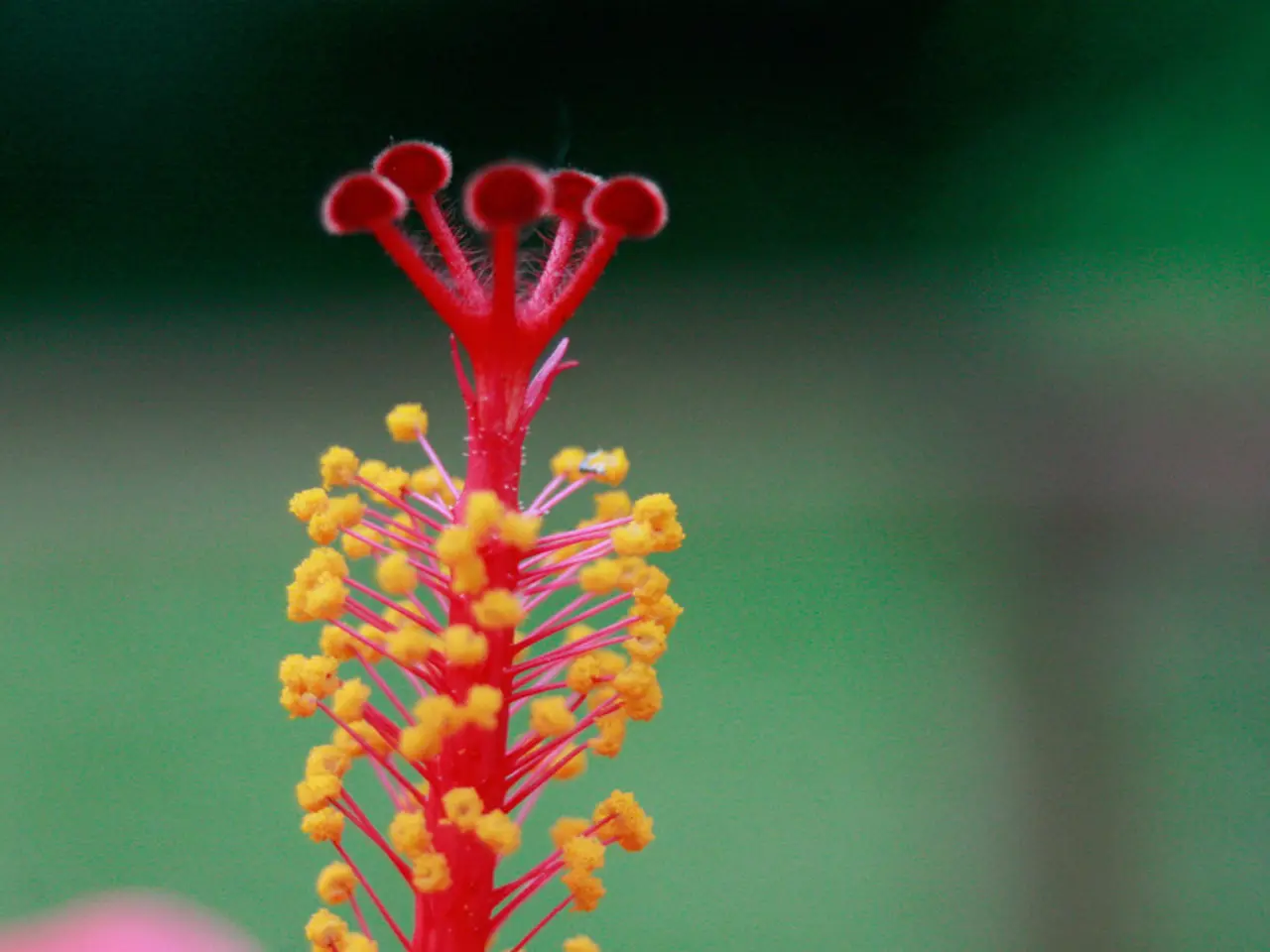Cough accompanying hay fever: Origin, identification, and indicators
In the realm of seasonal allergies, hay fever coughs often pose a common yet distinctive challenge. Unlike coughs caused by a cold or flu, hay fever coughs are triggered by allergens, leading to distinct symptoms and treatments.
Hay fever coughs, also known as allergic coughs, are characterised by a dry or postnasal drip-induced throat irritation, clear mucus discharge, and a host of allergy symptoms such as itchy eyes, sneezing, and no fever [1][2][3]. In contrast, coughs caused by a cold or flu are associated with viral infection signs such as fever, body aches, colored mucus, and systemic symptoms [1].
If a cough lasts for more than 10 days, does not respond to over-the-counter medications, or is painful, it is recommended to consult a doctor, especially if it occurs only in specific settings or seasons [1]. A primary care doctor may refer a person to an allergist if they suspect hay fever [1].
Allergens associated with perennial hay fever include pet dander, household dust, dust mites, indoor mold and fungus, chemical irritants in cleaning products, scented products, smokedust, off-gasses from materials such as rubber, canvas, and leather, air pollution, and cockroach excrement, saliva, and shells [2]. Common symptoms of hay fever include an itchy, scratchy, or dry throat, an itchy nose, a continual need to cough, congestion lasting longer than 2 weeks, congestion that occurs at certain times of the year, itchy, watery, puffy, or swollen eyes, sneezing, a runny nose, a sore throat, minor fatigue and weakness, reduced or lost senses of smell and taste [2].
Hay fever, or allergic rhinitis, affects an estimated 40 to 60 million Americans [4]. To prevent hay fever, it is recommended to avoid exposure to known or suspected allergens, and lifestyle changes can reduce the risk and limit the severity of symptoms [5].
In treating hay fever coughs, medical options range from over-the-counter antihistamines and decongestants to prescription medications in severe cases, as well as nasal corticosteroid sprays and allergy shots to build immunity [1]. Home remedies for managing hay fever and an associated cough may include using a saline-based nasal spray, staying hydrated, and taking over-the-counter antihistamines during hay fever seasons [6].
It is essential to note that while this article provides an overview of hay fever coughs, it is always advisable to consult a healthcare professional for accurate diagnosis and treatment.
References: [1] Mayo Clinic. (2021). Cough. Retrieved from https://www.mayoclinic.org/diseases-conditions/cough/symptoms-causes/syc-20370099 [2] American College of Allergy, Asthma and Immunology. (n.d.). Hay Fever. Retrieved from https://acaai.org/allergies/seasonal-allergies/hay-fever [3] WebMD. (2021). Hay Fever vs. a Cold: What's the Difference? Retrieved from https://www.webmd.com/allergies/hay-fever-vs-cold [4] Asthma and Allergy Foundation of America. (2021). Hay Fever. Retrieved from https://www.aafa.org/disease-management/allergies/hay-fever/ [5] American Academy of Allergy, Asthma & Immunology. (2020). Managing Environmental Allergies. Retrieved from https://www.aaaai.org/conditions-and-treatments/library/allergy-library/managing-environmental-allergies [6] Healthline. (2021). Home Remedies for Hay Fever. Retrieved from https://www.healthline.com/health/hay-fever/home-remedies#overview
- The dry or postnasal drip-induced throat irritation associated with hay fever coughs can be accompanied by allergy symptoms like itchy eyes, sneezing, and no fever.
- Unlike coughs from colds or flu, hay fever coughs are triggered by allergens like pollen, dust mites, and pet dander, leading to distinct symptoms and treatments.
- If a cough lasts more than 10 days, does not respond to OTC medications, or is painful, seeking medical advice is essential, especially if the cough appears only in specific seasons or settings.
- Treating hay fever coughs may involve a range of medical solutions, such as prescription medications, nasal corticosteroid sprays, allergy shots, and OTC antihistamines for mild cases.
- Lifestyle changes, including avoiding known allergens, can help reduce the risk and limit the severity of hay fever symptoms, such as chronic diseases like hay fever and respiratory conditions.
- In the realm of workplace-wellness, addressing hay fever symptoms, along with eye-health, skin-care, fitness-and-exercise, and mental-health, will contribute to overall health-and-wellness.
- Therapies-and-treatments for hay fever may include cbd as a possible natural remedy for managing inflammation and easing symptoms related to skin-conditions and allergies.
- As always, it is crucial to consult a medical professional for accurate diagnosis and treatment before starting any new therapies or treatments.




